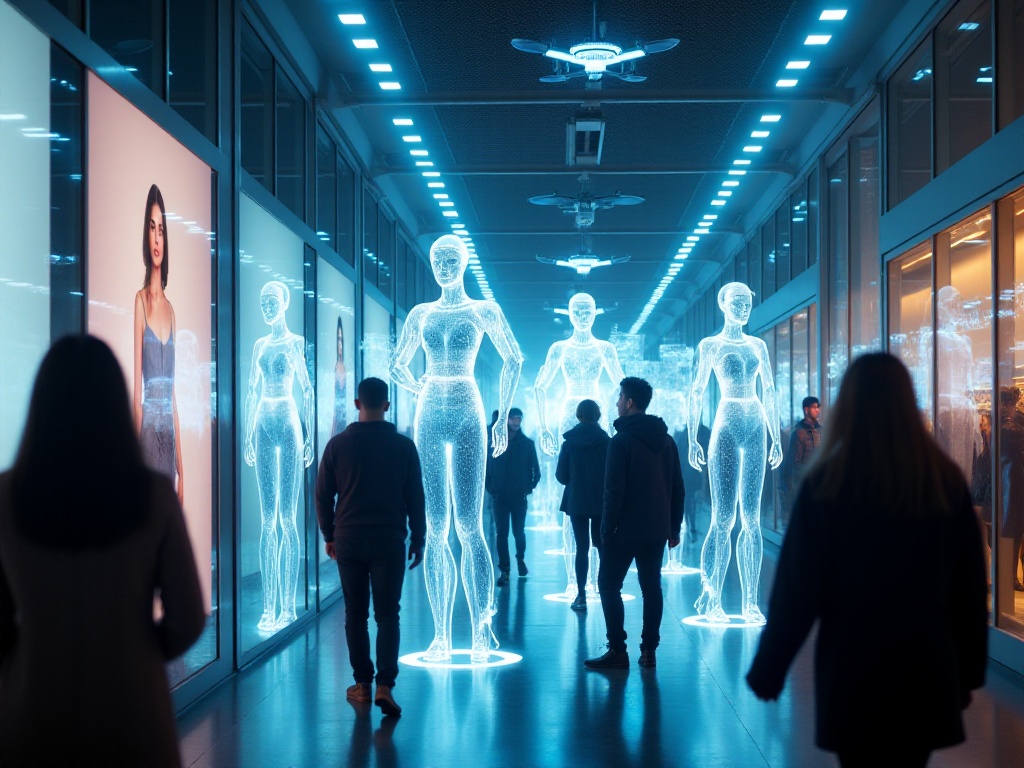Preface
Recently I've noticed everything around me changing quietly, experiencing something new every day. As a blogger deeply involved in AI application research, I'm truly amazed by these changes. For instance, the other day while writing an article, I suddenly had a brilliant idea. I casually spoke to my phone, and the AI assistant immediately recorded it and proactively suggested several related points. The experience was absolutely incredible!
There are so many such "small pleasures" in life that sometimes I really marvel at how technology has already changed our way of life so imperceptibly. Today, let me share from the perspective of an ordinary young person about those AI applications that have already infiltrated our lives, and see how they're making our lives more convenient and smarter.
Home Revolution
I remember when I was little, every weekend my mom would chase us kids around with a broom, saying it was time for a thorough cleaning. Back then, I thought cleaning was the most annoying thing in the world. But now it's different - my robot vacuum has completely changed everything.
Honestly, when I first saw the robot vacuum, I thought it was just a toy. Until one day when I came home from work and found the floor gleaming clean, I realized this little guy meant business. It not only plans routes automatically but can also recognize furniture, avoid obstacles, and even distinguish carpet edges. Most amazingly, it can remember my home's floor plan and knows which areas tend to collect dust and need extra attention.
My Roomba has become a dedicated "cleaner," cleaning on schedule every day without slacking. It's even more diligent than I am - sometimes while I'm watching shows on the couch, it quietly glides past my feet to clean. More impressively, it can report cleaning progress through its app and even reminds me when it's time to empty the dustbin. This experience really makes me feel like I'm living in the future.
Speaking of smart homes, what impresses me most is the Nest smart thermostat. At first, I wondered how smart a thermostat could be, but after using it, I discovered it's truly a life-changing device. It learns our daily routines, adjusts the temperature before we get home, and automatically lowers it at night to save energy. One weekend when I slept in, it even automatically delayed the heating time - this level of thoughtfulness is truly touching.
Data shows that households using smart thermostats save an average of 15-20% on energy consumption. This is not only environmentally friendly but also saves quite a bit on electricity bills. I calculated that last year alone, my family saved nearly 2,000 yuan in electricity bills. Wouldn't that money be better spent on something else?
Besides these, smart speakers have also become standard in my home. They not only play music but can control various smart appliances. Sometimes when I'm lying in bed reading and want to dim the lights, I just need to say the word - no need to even get up. Recently it's learned to distinguish different voices; when I say "play my playlist" versus when my mom says it, it automatically switches to different playlists - this experience is really amazing.
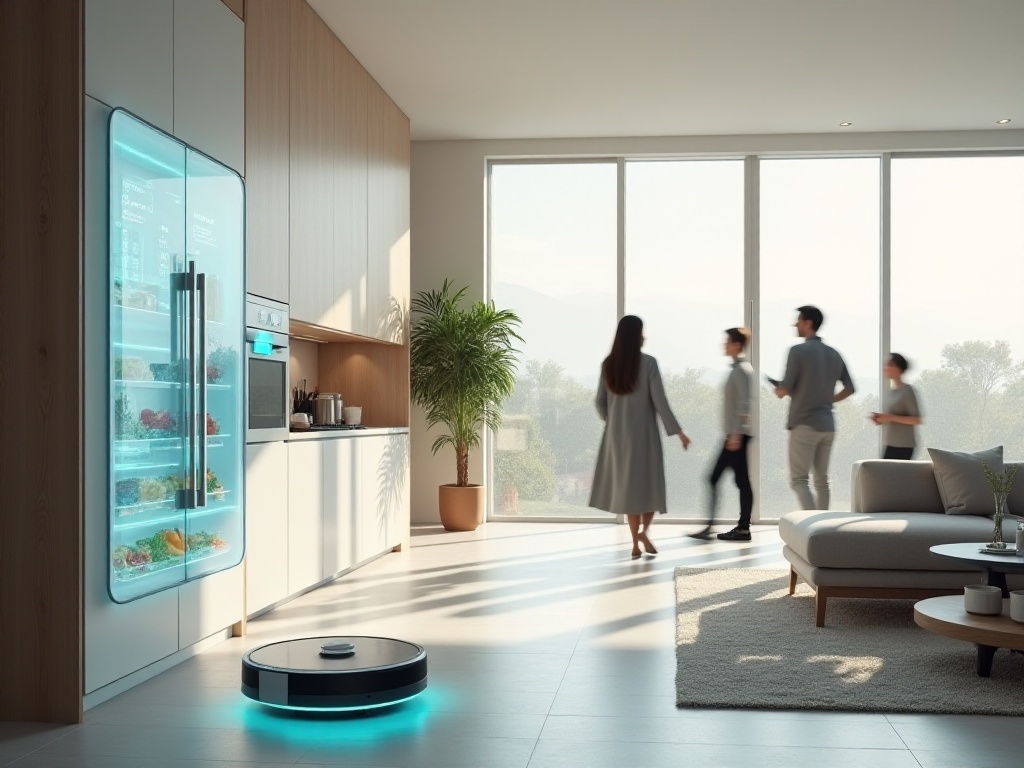
Personal Assistant
When it comes to the AI applications I can't live without now, smart assistants definitely rank first. They're like digital-age butlers, ready to solve problems anytime. I remember once while driving, I suddenly remembered I needed to buy a birthday gift for my mom. I just had to say "remind me to go to the mall after work to buy a gift" to my phone, and Siri perfectly solved this small problem. Moreover, it thoughtfully asked if I needed recommendations for nearby shopping centers and proactively checked the operating hours of various malls.
Smart assistants have become increasingly intelligent now. They can not only help you set reminders but also help plan schedules, reply to emails, and make restaurant reservations. Sometimes I think they're even more competent than my personal assistant. Statistics show that global daily usage of smart assistants exceeded 5 billion times in 2023, and this number continues to grow.
Recently I discovered that smart assistants can also help write emails, which has absolutely saved my professional life. Once I needed to write an apology letter to a client and was struggling with the wording for ages. I casually asked the smart assistant, and it generated a professional and sincere email that even our department manager praised. Since then, whenever I need to write important emails, I always let AI draft them first.
Smart assistants are particularly good at organizing information. For instance, I often save many articles and videos but frequently forget where I put them. Now I just need to ask the smart assistant "Where's that article about artificial intelligence I saved last week?" and it can immediately find it for me. It even proactively analyzes my reading habits and pushes relevant content when I might need it.
Interestingly, smart assistants seem to be constantly evolving. Recently they've learned to understand my needs based on context. For example, when I say "it's cold," it will ask if I want to increase the air conditioning temperature; when I say "I'm hungry," it will recommend nearby takeout options. This near-human level of understanding sometimes makes me forget I'm talking to an AI.
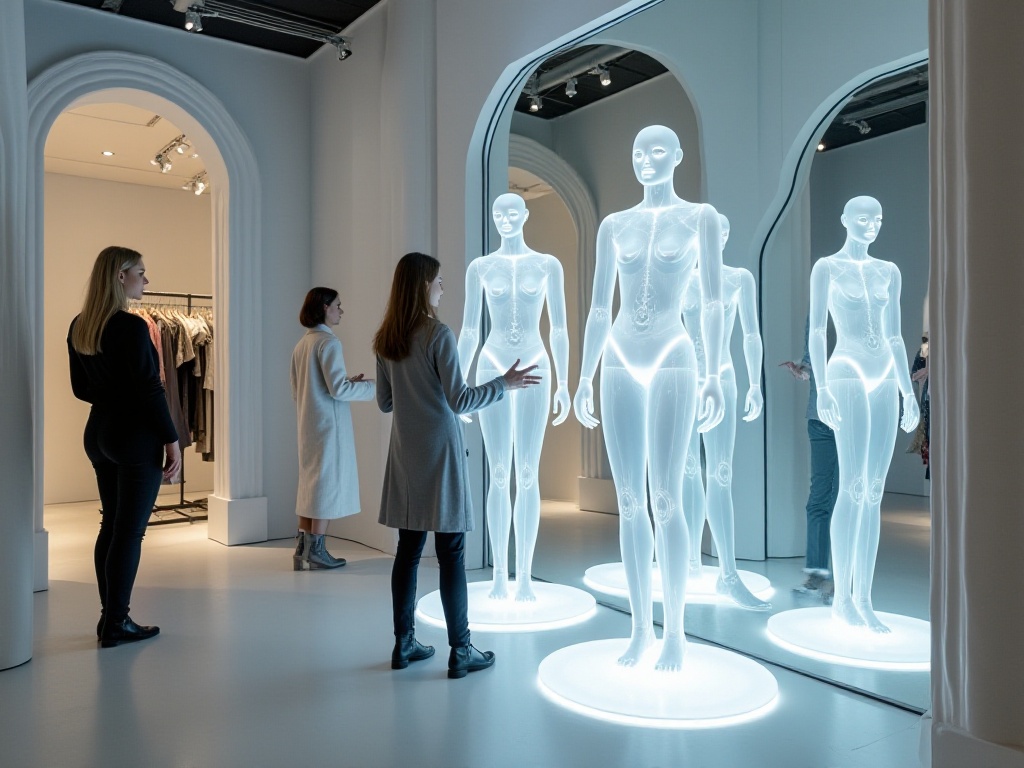
Smart Transportation
Speaking of travel, today's navigation systems are incredibly smart. Last week when I went to a newly opened mall, the navigation not only helped me avoid traffic jams but also recommended the best parking spot based on real-time parking data. Most amazingly, it even adjusts routes based on weather conditions. Once during heavy rain, it proactively warned me that the road ahead was prone to flooding and suggested I take a detour.
Current AI navigation systems have achieved over 98% accuracy, a 15 percentage point improvement from five years ago. They can not only plan optimal routes but also predict traffic conditions in real-time. Sometimes I think they're almost clairvoyant, often notifying me to change routes before traffic jams even occur.
Smart navigation is particularly good at considering user experience. It recommends different routes for different times of day, such as avoiding schools and commercial areas during rush hour and suggesting scenic routes on weekends. Recently it added a new feature that can recommend special local foods and photo spots along the way, basically becoming a mobile local guide.
I must say, today's navigation systems are really good at "reading the room." They know which route I prefer for work commutes, where I like to park when going to the supermarket on weekends, and even which congested routes I hate most. Sometimes I feel they understand my travel habits better than I do myself.
Navigation systems have recently added social features, allowing users to see traffic information shared by other nearby users. Once on the highway, I encountered a broken-down car ahead and was able to slow down and avoid it early thanks to other users' warnings. This kind of real-time interaction makes the entire travel experience safer and smoother.
Medical Innovation
In the medical field, AI applications are even more amazing. Microsoft's InnerEye project is like giving doctors "super eyes," capable of precisely identifying abnormalities in medical images. This technology not only improves diagnostic accuracy but also greatly reduces doctors' workload.
Speaking of AI in medicine, I had a particularly profound experience. Last year during my mom's routine physical examination, the AI system detected a tiny abnormal spot in her CT scan that was difficult to notice with the human eye. It was this early detection that allowed my mom to receive timely treatment. Thinking about it now still makes me nervous - without AI's help, we might have missed the best treatment window.
According to recent studies, AI-assisted diagnosis has achieved over 95% accuracy in some fields, bringing revolutionary progress to medical diagnosis. This is particularly impressive in areas requiring extensive image analysis, such as radiology and pathology.
Many hospitals now use AI consultation systems that can provide preliminary diagnoses before you visit the hospital. Once when I had a fever late at night, I did a simple consultation through the AI system, which not only suggested possible causes but also advised whether I should go to the hospital. This service is really thoughtful and saves a lot of unnecessary hospital queuing time.
AI applications in mental health are also interesting. There are now AI counseling assistants that can chat with you 24/7. While they can't completely replace human therapists, they're still very helpful for basic psychological support. I have a friend who often uses this service and says it's more comfortable than confiding in humans because there's no fear of judgment.
Medical AI continues to evolve. Recently I saw news that some AI systems can now assist in diagnosis by analyzing patients' voice and facial expressions. For example, they can detect depression tendencies through changes in speech patterns or assess pain levels through micro-expressions. While these technologies are still experimental, they've already shown enormous potential.
Financial Intelligence
Financial services are also changing quietly. Today's smart investment advisors are like 24/7 financial consultants, able to adjust investment strategies based on your risk preferences and market changes. 2023 data shows that users of AI financial advisors achieved average investment returns 8.5% higher than traditional investments.
I'm a loyal user of smart investment advisory services myself. When I first started working, I knew nothing about financial management and just tried a smart advisor randomly. Surprisingly, it not only creates investment plans based on my age, income, and risk tolerance but also regularly sends me market analysis reports to help me understand my portfolio performance.
What impresses me most is its learning ability. It continuously adjusts strategies based on my investment feedback - for instance, when it notices I'm particularly interested in certain types of funds, it recommends more similar products. Plus, it responds incredibly quickly, often reminding me whether to adjust my portfolio at the first sign of market fluctuations.
Smart financial management is particularly good at "saving money." It analyzes my spending habits and suggests which expenses could be optimized. Once it noticed my takeout spending suddenly increased and proactively sent me money-saving advice along with some good-value takeout coupons. This kind of thoughtful service really touches me.
In terms of payments, AI has also brought many conveniences. Current smart payment systems can automatically identify transaction risks and prevent fraud. Once when my account had an unusual transaction, the system immediately detected and froze it, which later proved to be a fraudulent operation. This kind of intelligent protection makes me feel more secure about online payments.

Social Intelligence
In social media, AI's presence is increasingly strong. It not only helps filter spam but also recommends interesting content. Interestingly, statistics show that over 80% of users say AI recommendations are far more accurate than their own active searches.
Honestly, I was quite resistant to AI recommendations at first, thinking they would limit information diversity. But as I used them, I found the recommended content really suits my taste. And it's particularly good at "reading the room," knowing when I want to see light entertainment content and when I need professional learning materials.
AI applications in social media also include smart caption generation and real-time translation. Now we don't have to worry about not understanding foreign videos - AI automatically generates captions with quite good translation quality. This makes it easier for us to access quality content in various languages.
Social media AI continues to evolve. Recently many platforms have added AI filters and effects that can modify video backgrounds and change hairstyles and makeup in real-time. While the effects can be exaggerated sometimes, these features undeniably bring more fun to social interaction.
AI is particularly good at managing social relationships. It reminds you which friends you've had less interaction with lately and need to strengthen connections with, and which potential friends share your interests and are worth getting to know better. This intelligent social management makes our online social interactions more meaningful.
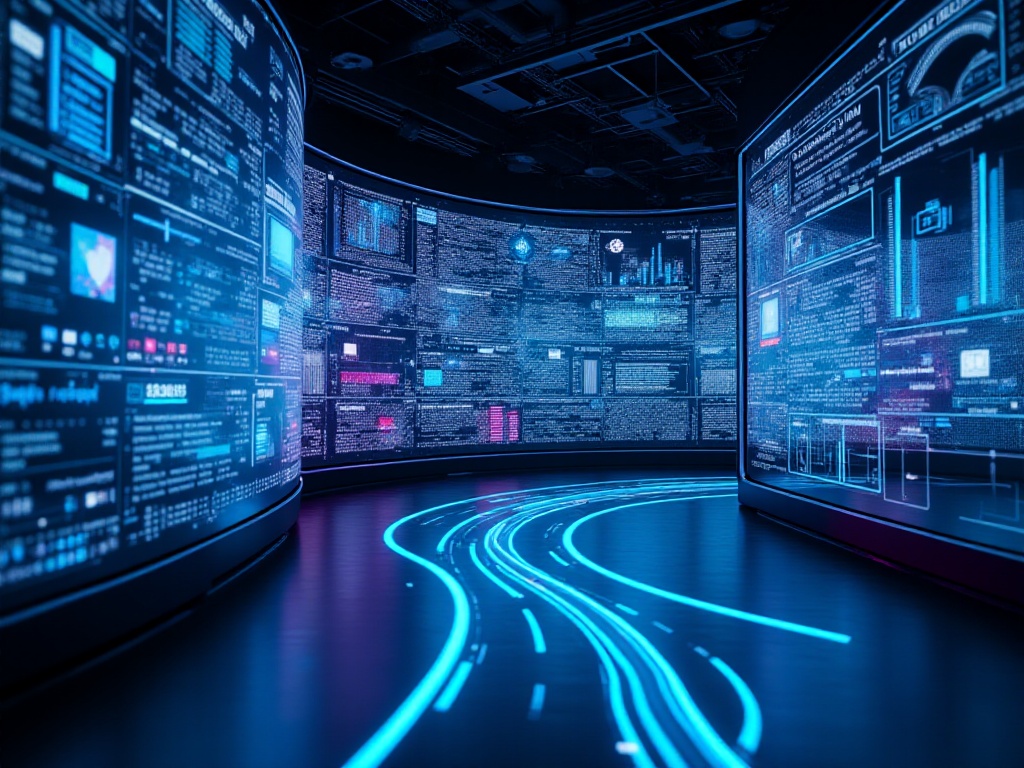
Creative Assistant
As a content creator, I particularly like using AI to assist with writing. It not only helps check articles for potential plagiarism but also provides writing suggestions. Current AI creative assistants have achieved over 90% accuracy, greatly improving creative efficiency.
The most impressive thing about AI creative assistants is their associative ability. Sometimes when I get stuck halfway through writing, they can provide many inspiring suggestions based on context. And their suggestions are all very logical, without particularly jumpy ideas.
During the writing process, AI can also help optimize article structure. It analyzes the logic of the article, pointing out which parts might need additional arguments and which paragraph transitions aren't smooth enough. This analysis is particularly helpful for improving article quality.
Besides writing, AI is also powerful in other creative fields. For instance, when editing videos, it can automatically identify highlights and provide editing suggestions. When processing images, it can intelligently remove backgrounds, adjust colors, and even repair damaged old photos. These features greatly enhance creative efficiency.
Recently AI creative assistants have learned style imitation. You can specify a writing style, and it will polish your article accordingly. This feature is particularly useful for creators who need to publish content on different platforms.
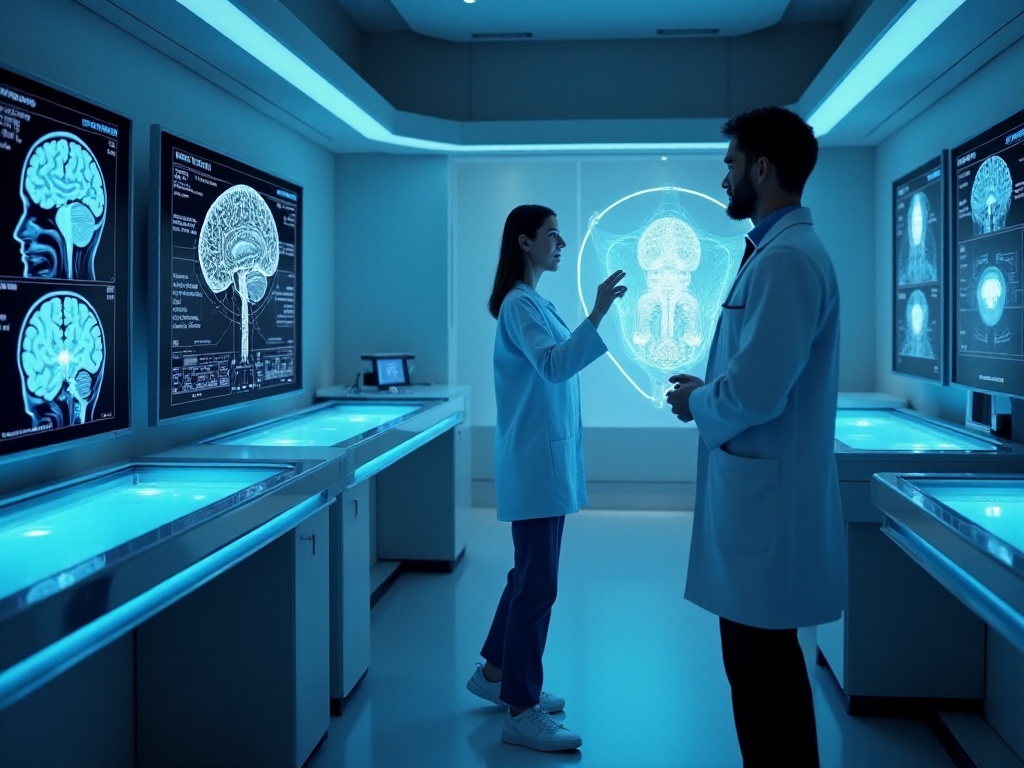
Future Outlook
After seeing these applications, aren't you also amazed by how AI has brought revolutionary changes to our lives? But this is just the beginning - more exciting applications will appear in the future.
I'm particularly looking forward to AI applications in education. Imagine every student having a personal AI teacher who creates teaching plans based on individual learning characteristics - this would greatly improve learning efficiency.
In entertainment, AI might bring more immersive experiences. For instance, AI-generated game scenes that change in real-time based on player behavior, or AI-created music that dynamically adjusts according to listeners' emotions.
In the workplace, AI might take on more repetitive work, allowing us to focus more energy on creative work. This isn't about replacing humans, but liberating them.
But ultimately, the goal of technological development is to make life better. AI progress makes our lives easier and smarter, giving us more time to enjoy life and do what truly matters.
Which areas of AI application are you most looking forward to? Perhaps ideas that seem like science fiction now will become reality in the near future. After all, technological development always exceeds our imagination. Let's look forward to more surprises brought by AI together.





